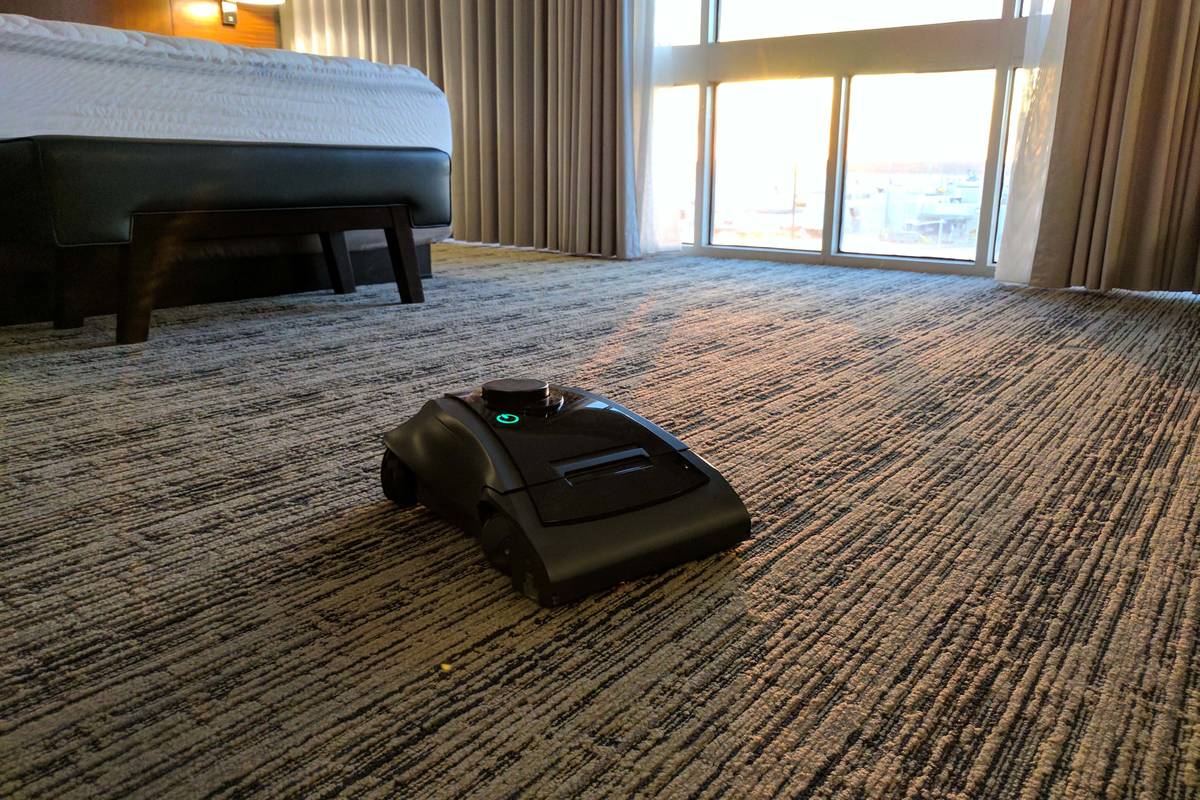5 startups get $900K to help travel and tourism recovery

Five teams of entrepreneurs have been awarded $900,000 combined to help the hospitality, entertainment and travel industries recovery from the COVID-19 pandemic.
The five finalists of the Lee School Prize for Innovation and Entrepreneurship, which ranged from a robotics company to a single-use recyclable linen company, presented their ideas to investors, manufacturers, industry end users and the public at the Global Gaming Expo convention’s virtual Demo Day on Tuesday.
The winners are set to begin work with UNLV’s Troesh Center for Entrepreneurship and Innovation to develop their concepts and bring them to an investor marketplace that includes leading corporations, private equity firms and angel investors. The solutions aim to hit the market within the next year.
“These were the five that the committee felt were the most impactful, had the greatest potential opportunity to succeed,” said Leith Martin, executive director of the Troesh Center. “I think each will be able to build a successful company.”
Promethium Limited: $250,000
This private, Las Vegas-based company is working to provide cleaner air inside stadiums, hotels, casinos, airplanes and homes. Promethium Limited produces air purifiers that use photocatalysts, which are powered by ambient light, to disperse and neutralize harmful airborne impurities. These include toxic fumes, smog, bacteria and viruses. The units can be installed in heating, ventilation and air-conditioning systems.
Purlin LLC: $250,000
Purlin produces single-use, recyclable bed linens. These items can contain high viral loads of the novel coronavirus after prolonged contact with infected people, according to a September report from the Centers for Disease Control and Prevention.
Hotel Data Cloud: $200,000
This platform aims to increase user trust in the global tourism and travel industries. The technology acts as a central hub for content updates, allowing travel-related companies to keep information on their website up to date and easily distributed.
Good WRX LLC: $150,000
App-based work-scheduling software Good WRX connects workers to open shifts and jobs at hotel-casinos through an artificial intelligence-powered platform. Businesses can indicate which kind of workers they need, how many, when they are needed and what they are willing to pay, and the app pairs them with available workers. After the job is complete, the workers and business rate each other on performance.
Maidbot: $50,000
Robotics company Maidbot’s products can help allocate more time to house cleaners saddled with COVID-19 safety protocols. It claims its Rosie robot is the world’s first housekeeping robot for commercial real estate and is five times more powerful and efficient than other commercial robotic vacuums. The Rosie robot can clean guest rooms, corridors, casinos, airports, airplanes, stadiums, universities and more. It collects data to improve cleaning schedules and alerts operators to Wi-Fi issues or potential mold areas.
More solutions needed
The global contest was founded by Greg and Ernest Lee of the Ted and Doris Lee Family Foundation in partnership with UNLV’s Lee Business School. The Lee School Prize committee received more than 250 submissions from 32 states and nine countries.
While the five finalists received different monetary awards, Martin said they are all considered equal winners, and the monetary awards varied based on each team’s needs.
Three other teams were named Nevada Innovation Award winners, and each received $25,000 to support their solution’s growth.
Another $25,000 component of the $1 million allocated to the Lee School Prize has not yet been used.
Martin said there were some problems the committee did not find solutions for — such as a tool that would allow entertainment venues to automatically assign socially distanced seats based on group size. The final $25,000 is planned to be used in a future event, possibly a hack-athon, to find such more solutions for the travel, entertainment and hospitality industries.
“One of the reasons we focus on startups or younger companies is we believe they can have a bigger impact and move more quickly with their solutions,” Martin said. They “are often much more nimble and able to move much more quickly to maximize the opportunities in current market conditions.”
Contact Bailey Schulz at bschulz@reviewjournal.com. Follow @bailey_schulz on Twitter.